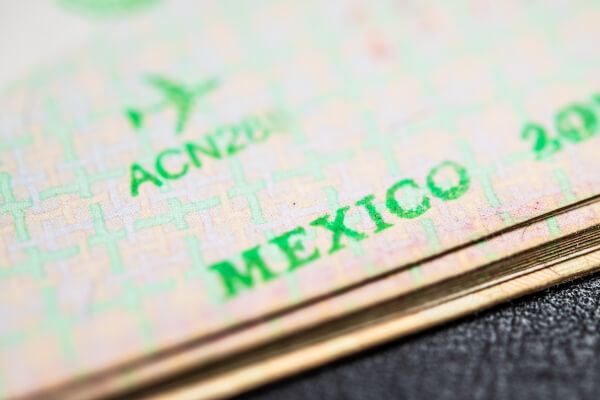Hiring Independent Contractors in Brazil: Legal Guide for 2026
Learn how to hire independent contractors in Brazil. Understand tax rules, compliance, contracts, and how to avoid misclassification risks.

If you’re a US citizen thinking about starting a business in Sri Lanka, you’d be wise to arrive with a plan. Sri Lanka has seen the emergence of more startups within the past decade. The government has made efforts to encourage trade and entrepreneurship.
While setting up a company involves minor administrative hurdles, the process is quick and straightforward. Registration is best done in-person, not online. Here are some important tips for the potential entrepreneur in Sri Lanka.
| 💡 One thing you're sure to need is a business account that can handle international transactions. Wise Business is here to make managing finances during international expansion less stressful. | |
|---|---|
There are several types of business structures in Sri Lanka. These are:
The structure of a sole proprietorship is similar in most countries. When you register as a sole trader, you’re taxed at a personal income rate. You’re responsible for all company obligations. This is the easiest and quickest business to set up. As a sole trader, you’ll still be able to employ other individuals.
A registered partnership is similar to a sole proprietorship, but the ownership is shared. From a legal and tax perspective, all partners share the obligations of the company. Partnerships aren’t taxed as separate legal entities, so partners are subject to personal income rates.
The limited liability company is the most common type of business in Sri Lanka. It requires one director and two shareholders. Minimum share capital isn’t required. The company secretary must be an individual who resides in Sri Lanka.
A public limited company doesn’t require minimum share capital, either. This type of business is required to have two shareholders and two directors. Directors are required to file annual returns, along with audited accounts and financial statements. Shares are allowed to be issued on the stock exchange.
An overseas company can be foreign-owned and can serve as a branch. This type of company’s operations are defined by the parent company. The company must register with the Treasury and is subject to a 14% remittance tax on remittance of its after-tax profits to its foreign head office.¹
An offshore company can conduct business outside of Sri Lanka. However, it cannot conduct business within the country, but will still be registered there.
The process for registering a Public Limited company in Sri Lanka is straightforward. On average, the entire process takes about ten days from start to finish.
Here are the steps:
Through the Registrar of Companies online, you’ll need to search for and reserve your company name. This approval of company name costs 2,000 Sri Lankan rupees (LKR), or the equivalent of about 6€. Your registration will be confirmed within two days.
Next, the company secretary and director must sign a consent form. This is done in person and only takes a day. If you don’t have a secretary in mind, local organizations will serve to provide a company secretary for a small monthly fee (between 30,000 LKR and 45,000 LKR).
Submit the following forms through the Registrar of Companies: Form 1 (Registration of a Company), Form 18 (Consent and Certificate of Director), Form 19 (Consent and Certificate of Secretary) and two copies of your Articles of Association. This process is typically completed within 3 days. The cost is a flat fee of 20,000 LKR for Form 1, plus a flat fee of LKR 2,000 plus 8% VAT for each of the other forms.
Give public notice of your company’s incorporation at the Daily Newspapers and Government Publication Bureau. You must give this notice within 60 days of incorporating, and the newspaper will publish your notice within two weeks.
Obtain a Tax Identification Number (TIN) from the Taxpayer Services Unit of the Inland Revenue Department. There’s no charge and it takes one day. This must be done in person.
If applicable, register for Value Added Tax (VAT) with the VAT Registration Branch of the Inland Revenue Department. It takes one day and there’s no cost. If you turn over more than 3,750,000 LKR per quarter you may obtain permanent VAT registration.
Obtain an (EFP) Number from the Department of Labour. Companies register here in order to pay gratuities to employees of more than five years through Sri Lanka’s Central Bank. This takes one day and there’s no cost.
|
|---|
The Sri Lankan Department of Inland Revenue lays out the tax structure required for individuals, partnerships and companies. Depending on your situation, you may be entitled to tax-free allowance in Sri Lanka, provided that your income is under a certain amount.
The Institute of Chartered Accountants in Sri Lanka created a code of corporate governance with respect to all company financial procedures. Within the code, they suggested that companies should develop a transparent policy on executive and director compensation. Corporate governance standards are now mandatory for all listed companies and they must cover training, compliance reporting and board structure.
According to Sri Lankan labour law, an employee is entitled to 14 days of paid annual leave after serving 12 months continuously at the company. Workers are entitled to one and a half days off per week, as well as pay on all public and religious holidays. They are also entitled to half a month’s salary for each completed year of service after five or more years in the event of a termination. Maternity leave is 12 weeks in Sri Lanka.
There’s no pension scheme for private sector employees in Sri Lanka. However, companies must pay gratuities to employees after five years in companies of 15 people or more.
There are many public bureaus, private companies and documentation available to assist entrepreneurs in Sri Lanka. There’s also a robust entrepreneur community within the country. Here are some of your options:
Now you’re at a great starting point to make sure your Sri Lankan business is a roaring success.
Wise is not a bank, but a Money Services Business (MSB) provider and a smart alternative to banks. The Wise Business account is designed with international business in mind, and makes it easy to send, hold, and manage business funds in 40+ currencies. You can get major currency account details for a one-off fee to receive overseas payments like a local. You can also Send money to 160+ countries.
| 🔍 Read the guide on how to open a Wise Business account |
|---|
| Some key features of Wise Business include: |
|---|
|
Open a Wise Business account online
Sources:
Sources checked February 2024.
*Please see terms of use and product availability for your region or visit Wise fees and pricing for the most up to date pricing and fee information.
This publication is provided for general information purposes and does not constitute legal, tax or other professional advice from Wise Payments Limited or its subsidiaries and its affiliates, and it is not intended as a substitute for obtaining advice from a financial advisor or any other professional.
We make no representations, warranties or guarantees, whether expressed or implied, that the content in the publication is accurate, complete or up to date.

Learn how to hire independent contractors in Brazil. Understand tax rules, compliance, contracts, and how to avoid misclassification risks.

Learn how to hire and pay independent contractors in Mexico. This article also includes an FAQ and best practices about working with contractors in Mexico.

Learn how to navigate the overseas worker recruitment. Discover legal requirements, sourcing strategies, visa compliance, and tips for international hiring.

Paying overseas vendors is common, but the hidden costs of B2B cross-border payments aren’t. Learn how to simplify international business payments today.

B2B payment processing doesn’t have to be hard. Learn how growing businesses can simplify cross-border transactions, streamline invoicing and get paid faster.

Discover strategies to enhance B2B payment security, reduce fraud risk, and protect cash flow using secure digital payment methods and automated workflows.